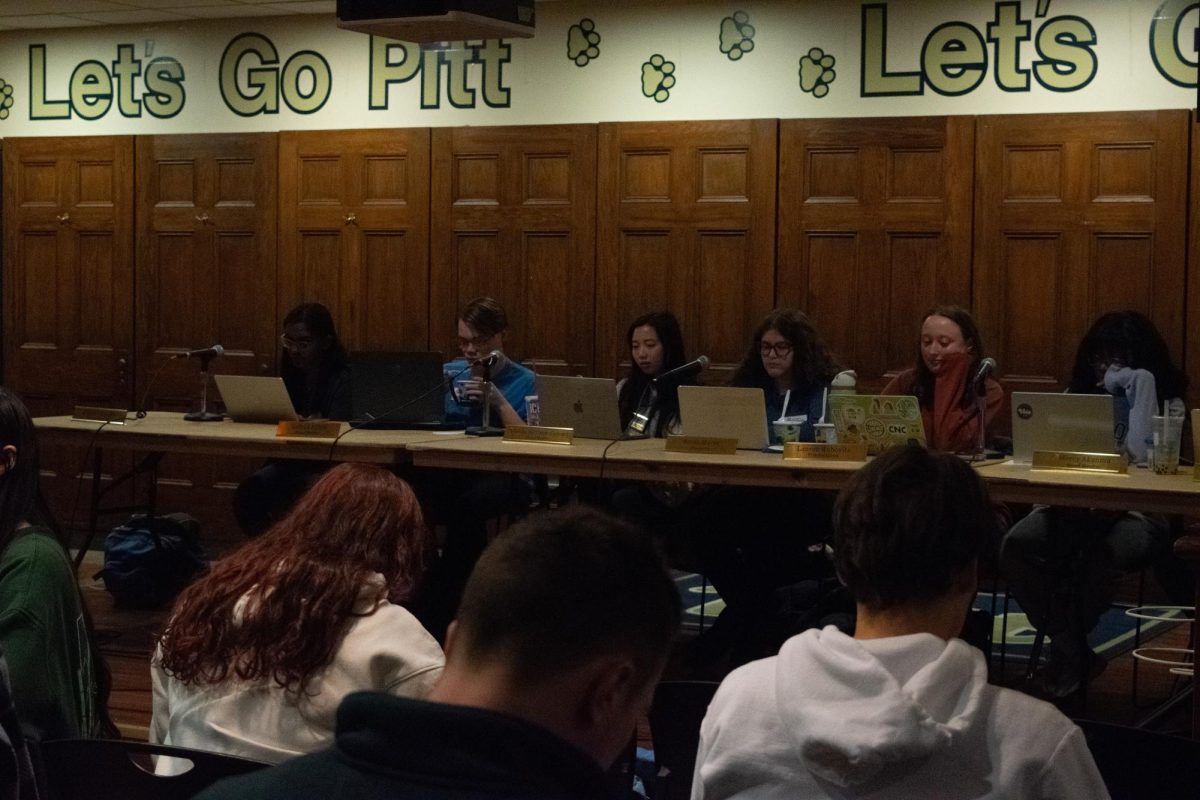Visors may not be the cool thing to wear, but they’re safe
February 23, 2004
Hockey players are stereotyped as the toughest men in all of sports. They take a stick to… Hockey players are stereotyped as the toughest men in all of sports. They take a stick to the face and fall to the ice with blood flowing profusely onto the cold surface. Twenty-five stitches and 10 minutes later, they are back on the ice, scoring goals. But I think it’s time for these tough men to make an attempt to prevent injuries.
The National Hockey League needs to implement a rule forcing all players to wear full face guards, or at least full visors. Players argue that a full face guard or a visor will prevent them from seeing the ice clearly, but the fact is that one puck to the face and they may never see anything clearly again.
Just ask St. Louis Blues defenseman Al MacInnis. He is out indefinitely after a high stick cut his eye and partially detached his retina. Now the former James Norris Memorial Trophy winner cannot see clearly out of his left eye and reports noticing several blind spots. MacInnis will miss the rest of the season and could be forced into retirement with this injury — an injury that could have been prevented with the use of a full face guard or a visor.
Philadelphia Flyer Jeremy Roenick is the recent victim of not having a full face guard on. He was hit by a puck on Feb. 13 in the Flyers’ win over the Rangers. The puck was fired toward the net from the point, off the stick of Ranger defenseman Boris Mironov. The impact of the puck shattered Roenick’s jaw and left the All-Star unconscious. He is now out for the season and even mentioned that retirement was a possibility.
Again, a mask could have also prevented this injury. And it’s not like Roenick didn’t see this coming. He was involved in a similar incident during a practice, according to the Philadelphia Inquirer, back on Jan. 7 of this year. The team was practicing power-play drills and teammate Mark Recchi shot the puck on net. The puck hit Roenick right in the jaw. He was taken in for X-rays, and, fortunately, they came back negative.
Another incident occurred in 2000 when former Maple Leaf Bryan Berard lost all his vision in one eye after taking a stick to the face. He miraculously still plays hockey, but he will never see out of his injured eye again.
Players in NCAA and in the North American junior system are required to wear full face guards — although the junior system allows players over 18 years of age to switch to a half shield. So why does the NHL ignore the dangers of not protecting their faces?
Even the great one, Wayne Gretzky, now part owner and managing general partner of the NHL’s Phoenix Coyotes, agrees with me.
“If someone would have said to me, ‘You’ve got to wear a visor,’ I’d have said, ‘You’ve got to be crazy,’ because I grew up not wearing a visor,” Gretzky said. “But so many kids now, they grow up wearing visors, and I encourage the young guys who come into the NHL not to take them off. There’s no reason to. They’re used to wearing the visors, it’s protecting their eyes, and, for their own safety and their own health, if I were them, I would keep them on. That’s just my personal opinion.”
This was a quote in response to the fact that the East Coast Hockey League implemented a rule this past year that all players must use visors.
Why are hockey players so stubborn in their refusal to protect themselves?
Jason Christie, head coach of the ECHL Peoria Rivermen– who spent 11 years playing in the AHL and ECHL — answered that question best in an interview placed on the ECHL’s official website.
“It’s like trying to give a kid a curfew,” he said, adding, “I didn’t wear a visor, and I wouldn’t, although we respect guys who do. I paid with a broken nose — 13 times.”
The stereotype is correct — they are the toughest, just not the brightest.
Jimmy Johnson is a staff writer for The Pitt News and he, without his full face guard on, suffered a broken nose while typing this column — 13 times.


